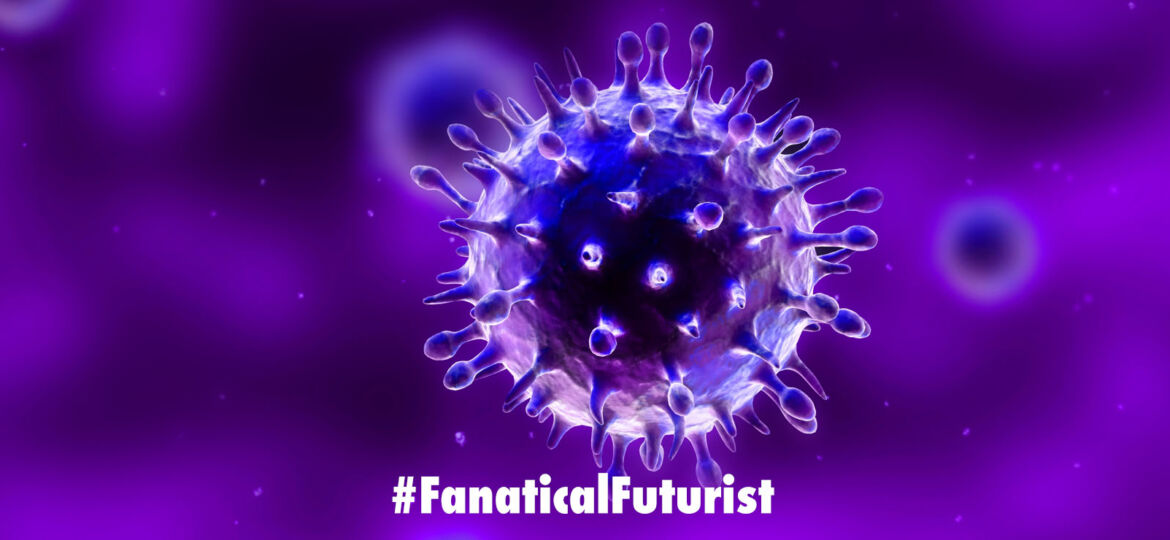
WHY THIS MATTERS IN BRIEF
A vaccine against AIDS/HIV would be revolutionary and perhaps put an end to a disease that has haunted people for decades.
 Love the Exponential Future? Join our XPotential Community, future proof yourself with courses from XPotential University, connect, watch a keynote, or browse my blog.
Love the Exponential Future? Join our XPotential Community, future proof yourself with courses from XPotential University, connect, watch a keynote, or browse my blog.
HIV is a disease that so far even the world’s most powerful gene editing tool, CRISPR, hasn’t been able to kill, and even though there have been some breakthroughs that have cured people with HIV those treatments are still far away from what the world craves – a universal cure. One day these cures could be grown in plants, programmed into designer humans, or cut out of living cells, but now there’s another possibility – thanks to research done to develop COVID-19 vaccines.
Before 2020, many of us had never heard of mRNA. With the development of Covid-19 vaccines dependent on this molecule, though, mention of it was all over the news. In early August, the US reached the milestone of 70 percent of adults having received at least one dose of the vaccine. Covid was the first disease mRNA therapeutics tackled, and given the success of the Pfizer and Moderna vaccines at preventing severe cases of the virus, it won’t be the last.
And now new candidates are lining up, with scientists saying mRNA could make it possible to develop vaccines against all kinds of diseases that, until now, haven’t had a solution in sight. One of these is HIV; Moderna started trials of its experimental mRNA-based HIV vaccine, called mRNA-1644, this week.
The Phase 1 trial will consist of giving the vaccine to 56 adults who don’t have HIV, with the primary goals being to evaluate its safety and monitor the development of an immune response in participants. In addition to the initial version of the vaccine, Moderna developed a variant called mRNA-1644-v2-Core.
As detailed in Moderna’s August 11 submission to the to the National Institutes of Health’s Clinical Trials registry, participants in the trial will be split into four different groups, with one group getting mRNA-1644, a second group getting mRNA-1644-v2, and the remaining two groups getting a mix of both versions. Rather than a blind trial, where people don’t know which injection they’re receiving, participants will be aware of what they’re getting.
This first phase of the clinical trial is scheduled to take around 10 months, and will be followed by Phase 2 and 3 trials. The later-stage trials will likely take much longer than the trials for Covid-19 did; as Covid spread like wildfire in 2019 and 2020 and hundreds of thousands of people got sick, it was much easier to give people a vaccine and quickly see who became infected and who didn’t. HIV is, thankfully, far less prevalent, and you can go a lifetime without ever coming into contact with the virus.
As you’ve probably heard by now through reading up on the Covid vaccines, mRNA-based versions work a little differently than traditional vaccines, which used a weakened bit of a virus to expose our bodies to it.
As detailed in an excellent, very-worth-listening-to ‘Gamechangers’ podcast from The Economist, mRNA vaccines are intended to train our cells to create proteins to fight a given virus. mRNA is the intermediary between DNA and proteins, and proteins control pretty much everything that happens in our cells. DNA makes mRNA, which in turn acts as a “messenger” and instructs our cells to make proteins.
The “workshop” where the proteins get made is the cell’s ribosome.
“This is fundamentally the idea behind RNA therapeutics,” said Natasha Loder, health policy editor at The Economist. “It’s about taking control of that workshop…by essentially manipulating these messengers.” In this case, the mRNA carries instructions to synthesize the spike protein on the Covid-19 virus.
For 24 to 48 hours after the mRNA vaccine is injected, the recipient’s cells start to manufacture the spike protein. The body tags it as an invader and launches an immune response. Then, when the person comes in contact with the real virus, their cells are already prepared to fight the infection before it takes over.
Much of the vaccine hesitancy we’re seeing is due to worries that the vaccines were developed too quickly, and are too new to be proven safe. However, as the podcast explains in excellent detail, mRNA therapeutics aren’t a brand-new technology at all – research in the area began as early as the 1970s.
Whether the HIV vaccine will work as well as the Covid vaccine remains to be seen – and it will take far longer – but initial indications are promising. Earlier this year, the International AIDS Vaccine Initiative and Scripps Research tested a piece of the vaccine, and saw 97 percent of study participants developing the intended immune response.
mRNA has been touted as a potential tool for vaccines against everything from malaria to cancer. In the wake of so much catastrophe, we can see this technology as one good thing the Covid-19 pandemic left in its destructive wake it truly seems we’ve approached a new frontier in medicine.
















